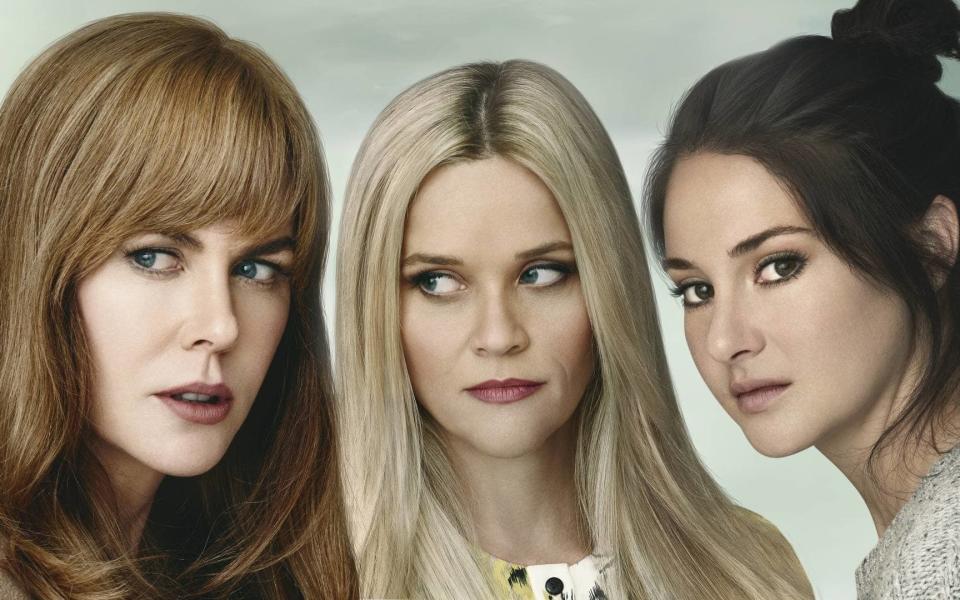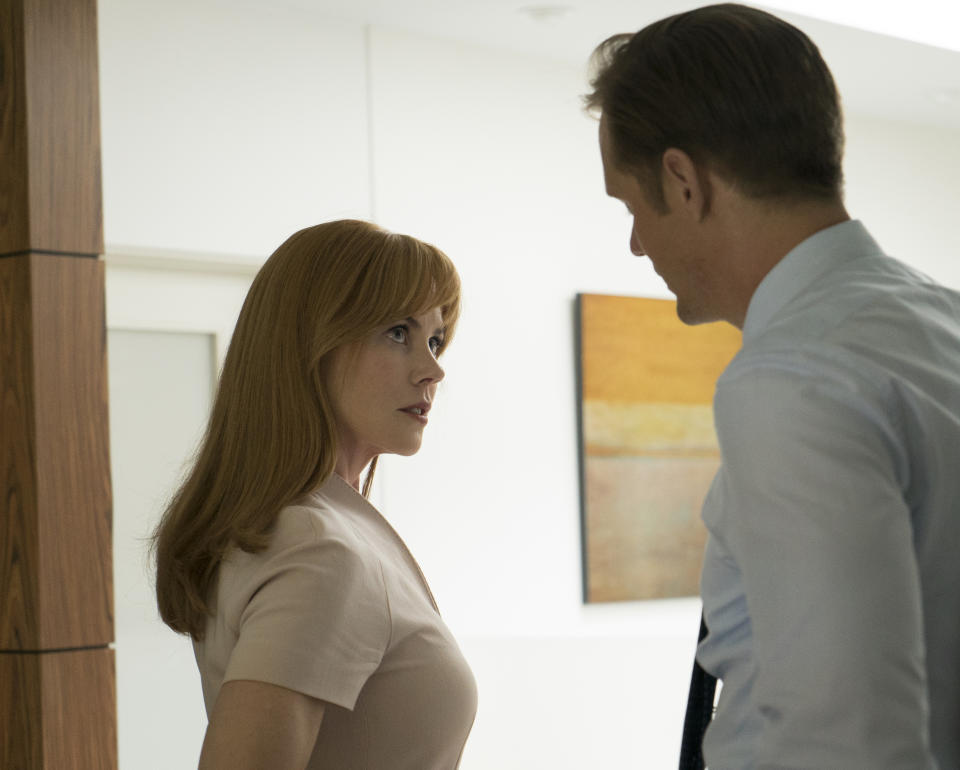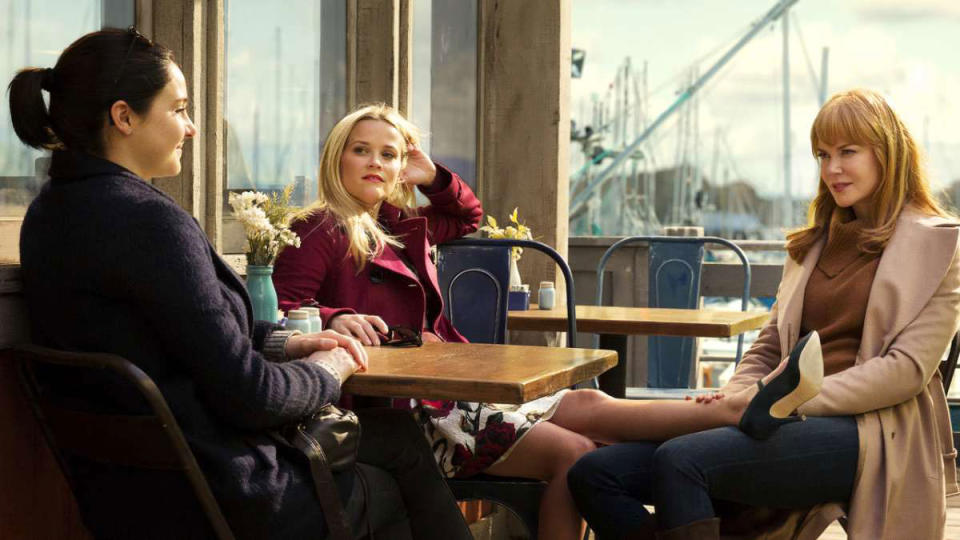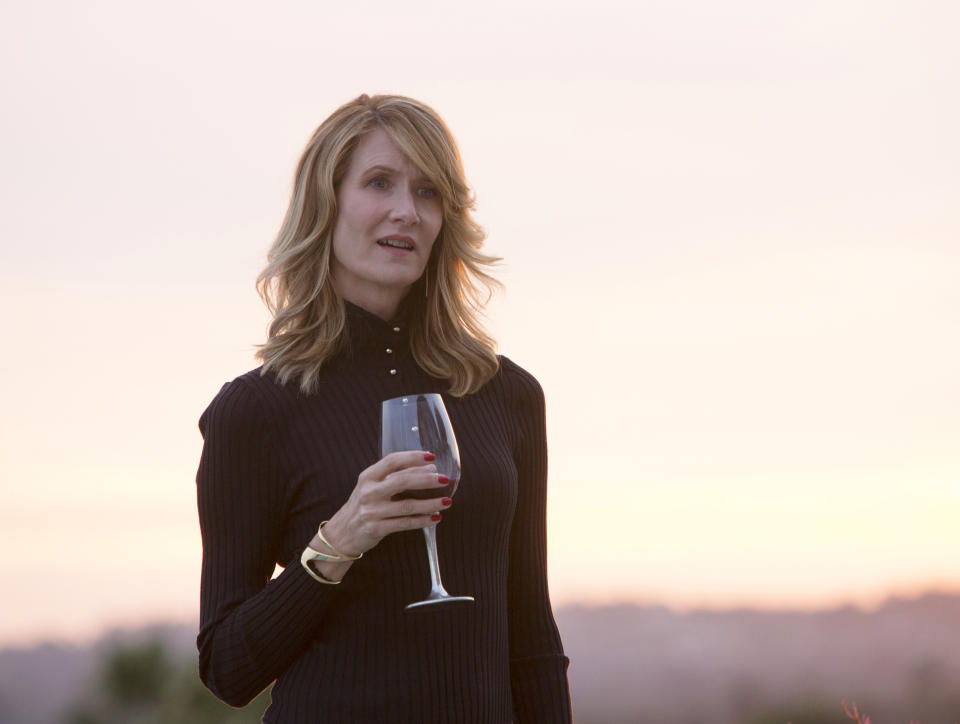Big Little Lies deserves to sweep up at the Golden Globes
If you’ve not seen HBO’s Big Little Lies yet, you’re seriously missing out.

Having aired earlier this year on Sky Atlantic, the seven-part series based on a novel by Liane Moriarty is much more than what appears on its surface.
It’s peppered with incident and subtlety; layered with nuance and deft acting that complements its strongly written episodes that flow seamlessly into one gripping story.
But the miniseries following the intricate, salacious lives of Madeline (Reese Witherspoon), Celeste (Nicole Kidman), and Jane (Shailene Woodley) is much more than a mother’s circle of gossipers.
Think the audacity of Desperate Housewives – perhaps its most shocking and engaging storylines – and you’re halfway to understanding the appeal and quality of each and every instalment that kicks off its season with mysterious murder that proceeds strings us along till the finale, before we begin ot learn whodunnit and who the victim even is.
Along the way – the winding journey and unravelling of our leads’ multi-layered personalities – is where Big Little Lies truly comes into its own.
A crime plot laced with comedy and frivolity that doesn’t shy from addressing some of the more unpleasant and explicit subject matters, *SPOILER* like the marital violence Celeste endures, or the devastating memories of rape Jane is trying to suppress *SPOILER*.

Tackling a number of hard-hitting issues such as domestic abuse, rape, and physical and emotional violence, the show feels even more relevant at the tail-end of 2017, considering the #MeToo movement after Harvey Weinstein’s (amongst many others’) crimes have come to light.
The exploration of gender power struggles and indeed shift of it during its narrative is commendable. Its women have personality, strength, and determination. They’re assertive enough to dominate their own destinies rather than be dominated.
Yet during other moments it exposes the fragility of the maternal roles each occupies, while demonstrating patriarchal power in its place and explores the emotionally volatile roles its husbandry characters James Tupper, Adam Scott, and Alexander Scarsgard play.
Because the level of acting is so strong, especially by Hollywood heavyweights Witherspoon and Kidman, the compelling story is elevated by the convincing portrayals, as we witness raw, horrifying, and contrasting snippets of seemingly ‘normal’ family women. We glimpse into something deeper that draws you in as early as its first episode.

And it’s the reason both Witherspoon and Kidman are nominated in the same Golden Globes category, for Best Actress in a Mini-Series; as are Woodley and Laura Dern’s provocative turns – rightly up for Best Supporting Actress, respectively. Skarsgard’s Best Supporting Actor s also a given. While there are arguably many outstanding actors throughout the series, pretty much everyone involved is at the top of their game.
From Scott, to Zoe Kravitz in supportive roles; every last detail only serves to forge a totally believable and organic world. Couple this with a genuinely tense crime story that builds with each hour, it’s difficult to voice any genuine criticism for the show once you become wrapped up in it.
Its competition for Best Mini-Series is a tight category. The likes of Jessica Biel’s The Sinner and Feud: Bette and Joan, starring Susan Sarandon and Jessica Lange, are well-written, compelling shows. Yet it’s Big Little Lies that stands head and shoulders above its competitors.

One of those rare shows that will have you glued to the screen from the moment it starts; all we want to know is answers and as they tease and unfold before us, it becomes a televisual experience that’s hard to shake.
For me, this isn’t even about the other shows it’s against or how good they are, but is a pack leader based on its own self-contained, genius merit.

 Yahoo Movies
Yahoo Movies 
